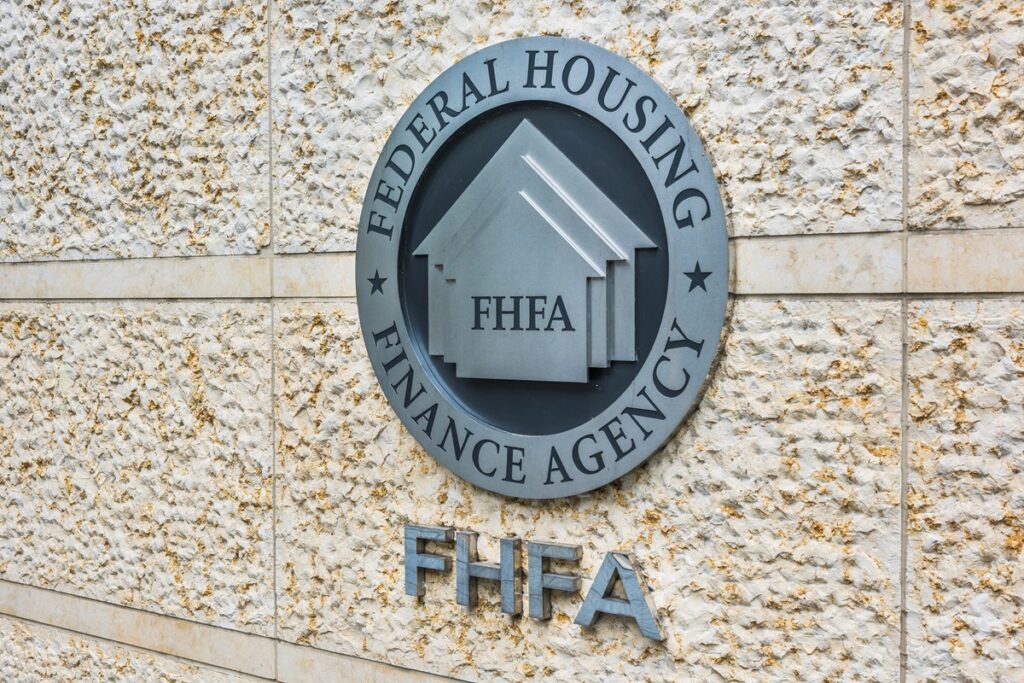Federal Housing Finance Agency (FHFA) Director William Pulte recently appeared on CNBC’s Squawk Box to discuss current mortgage rates, the state of Fannie Mae and Freddie Mac, and the flurry of activity he has experienced since being confirmed as head of the FHFA by the Senate in mid-March.
On the topic of privatization of the GSEs, Pulte had this to say, “We’ll see. We have a great deal-maker as President of the United States,” said Pulte. “We have, for the first time, a full-term confirmed Director of the FHFA, we have a great Treasury Secretary, and we have a great President, and I look forward to working with them. My job right now is focused on making sure there is operational efficiencies … that the bloat is gone, that these businesses are safe and sound, and frankly that they are in tip-top shape to do whatever the President elects to do.”
On September 6, 2008, with consent of both Fannie Mae’s and Freddie Mac’s Boards of Directors, the Director of the FHFA exercised statutory authority to place each GSE into conservatorship. This established the two conservatorships in response to a deterioration in the housing markets that severely damaged the financial condition of each, and left both of them unable to fulfill their missions without government intervention. The Federal Housing Enterprises Financial Safety and Soundness Act of 1992 as amended by the Housing and Economic Recovery Act of 2008, authorizes FHFA as conservator to “take such action as may be necessary to put the regulated entity in a sound and solvent condition; and appropriate to carry on the business of the regulated entity and preserve and conserve the assets and property of the regulated entity.”
To date, Pulte has made several changes to the leadership of both Fannie Mae and Freddie Mac, appointing himself chairperson of both boards.
“This has made the housing market way stronger,” said Pulte of the changes atop the GSEs. “Frankly, Fannie and Freddie were bloated, people weren’t even working there, there were 16,000 employees. We would have kitchens where they were making caramel popcorn, cheeseburgers, and pizza, and nobody was there to eat these foods. We ordered everybody back to work. I was very disappointed with some of the things I found with the board as it relates to multifamily fraud, and the work from home, amongst other things.”
As mentioned by Pulte, Fannie Mae dismissed more than 100 employees after they were caught engaging in unethical conduct, including acts of fraud. In a Q3 2024 Securities and Exchange Commission (SEC) filing, Fannie Mae reported that it had experienced financial losses due to mortgage fraud, and that it was investigating multifamily lending transactions where fraud was suspected.
“In President Trump’s housing market, there is no room for fraud, mortgage fraud, or any other deceitful act that can jeopardize the safety and soundness of the housing industry,” added Pulte. “Since my swearing-in, we fired over 100 employees from Fannie Mae who we caught engaging in unethical conduct, including facilitating fraud, against our great company. Anyone who commits fraud against Fannie Mae does so against the American people.”
Pulte stressed the Trump administration’s commitment to combating the issue of mortgage fraud. Consumer Financial Protection Bureau (CFPB) Chief Legal Officer Mark Paoletta recently issued a letter to Bureau staffers outlining how the agency will channel its focus on “tangible harm to consumers” by shifting resources from enforcement and supervision activities that can be done by states.
The memo from Paoletta keyed in on the fact that the Bureau will turn its attention to mortgage fraud its “highest priority,” followed by Fair Credit Reporting Act (FCRA)/Regulation V data furnishing violations; Fair Debt Collection Practices Act (FDCPA)/Regulation F violations relating to consumer contracts/debts; various fraudulent overcharges, fees, etc.; and the protection of consumer info resulting in actual loss to consumers.
“We see fraud everywhere, but generally speaking, the businesses are safe,” said Pulte. “We are making mortgage fraud a huge area of focus, specifically on single-family and multifamily. A lot of people think it existed in one or the other … we see it in both and are going to eradicate it.”
Pulte continued and described the position he will take in his role as FHFA Director.
“We need to have an FHFA Director that is engaged,” said Pulte. “One of the things that is interesting is that many of the employees at Fannie and Freddie have never seen an FHFA Director in these buildings.”
He feels the individual in the FHFA leadership role needs to be more active and present as head of the Agency with a deeper hands-on approach.
“I actually said to the driver who had driven all the FHFA Directors before me, I said I am going to Fannie and Freddie in Virginia, and he said, ‘Sir, I don’t think they are in Virginia … I have never been to these buildings,'” said Pulte. “We need a Director who will be in there, and President Trump hired a businessman who has had businesses. We are going to get these businesses turned around, and they are going to be great American icons once again, but in a safe and sound manner this time.”
Housing affordability remains top-of-mind for most prospective buyers, as many are still taking a wait and see approach to home purchases. Rising home prices and economic instability are two key factors driving today’s purchase market. Redfin reports that in April 2025, U.S. home prices were up 1.4% compared to last year, selling at a median price of $437,942. On average, the number of homes sold was down 3.8% year-over-year, with 437,088 homes sold in April of this year, down from 454,245 homes sold in April 2024.
“Home prices being up is not necessarily a bad thing in and of itself if you have people having earning potential,” said Pulte in his interview with Squawk Box Host Becky Quick. “But for the last four years, people’s earnings, as a matter of adjusted for inflation, has been reduced and people could not afford rent, they could not afford to buy a new home, etc.”
Yet another factor, mortgage rates, is contributing to the wait-and-see purchase market as mortgage rates continue to hover in the 7% range. Freddie Mac reports the 30-year fixed-rate mortgage (FRM) averaging 6.76% as of May 8, 2025. A year ago, at this time, the 30-year FRM averaged 7.09%.
“I am very optimistic about this administration,” added Pulte. “Frankly, I think there is going to be, at the right time, a housing boom, but first we need to reverse what has happened over these past four years. Nobody could afford a home over the past four years, and people could barely afford rent over these past four years. We need to change that, and we are working every day to fix that.”
See the video below of FHFA Director William Pulte’s appearance on CNBC’s Squawk Box.





